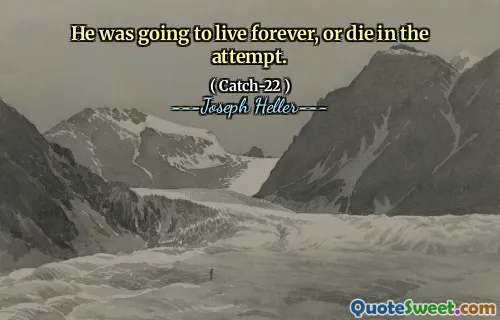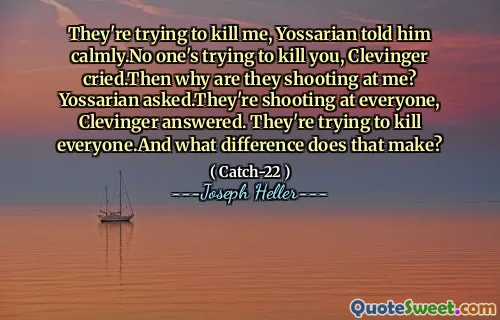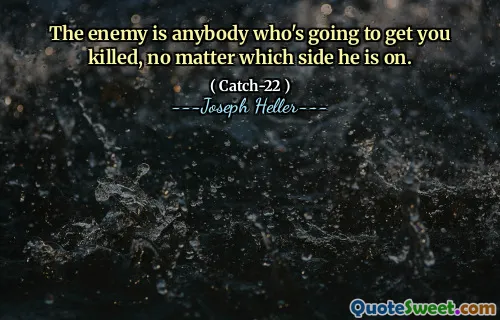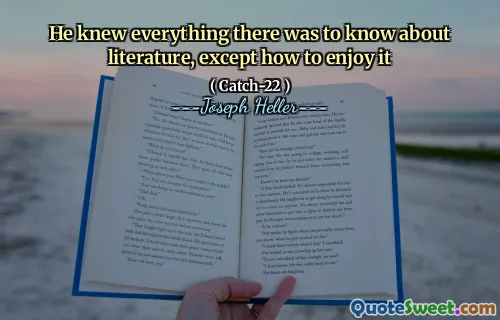
- You may have to fill a long life with a lot of unpleasant circumstances if you want to look long. But if so, who needs it? "For me," Dunbar told him. - Why? Clevinger asked. - Do you know better?
In Joseph Heller's "Catch-22," a character named Dunbar reflects on the value of life and the challenges that come with it. He suggests that one may have to endure numerous unpleasant experiences to extend their lifespan, questioning the necessity of such a long life if it is filled with hardship. This leads to a deeper philosophical discussion about the quality of life versus its duration.
Clevinger, another character, is intrigued by Dunbar's outlook and asks him why he feels this way. Dunbar's perspective invites readers to contemplate the true worth of existence; is it preferable to live a longer life fraught with difficulties, or to seek a meaningful life, no matter how brief? Heller's narrative challenges conventional views about life and mortality.











